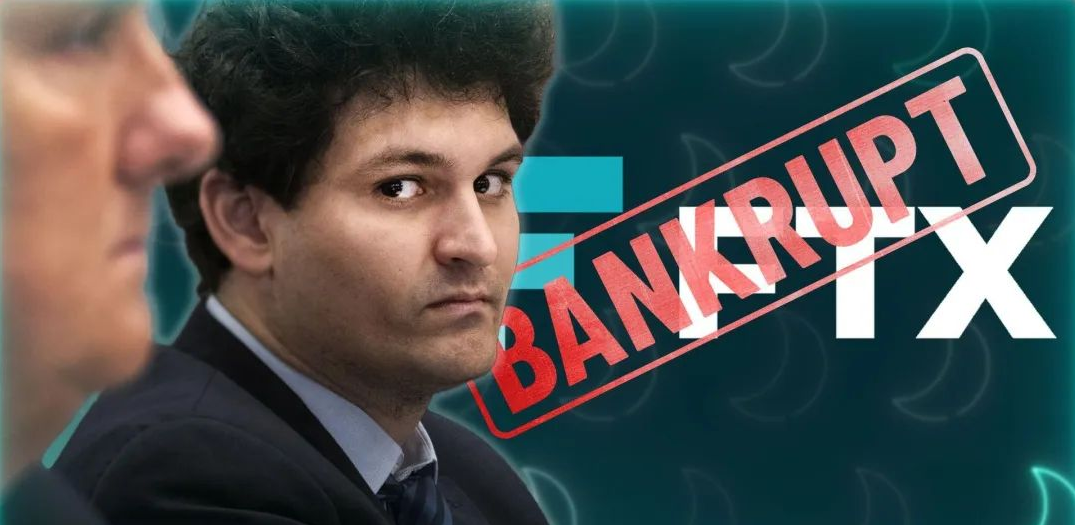Annual inventory: victory is justice? The six major mysteries in 2019
Author: Liang CHE
Source: Tweet bitpush.news
Editor's Note: The original title was "Beyond Pushing Inventory Six: Victory Is Justice?" The Seven Suspense Cases of the Currency Circle in 2019, this article has been deleted without changing the original intention of the author.
In 2019, the crypto industry continues to advance by leaps and bounds. By contrast, related laws and regulations are far behind, and BitpushNews has taken stock of six major pending cases in the crypto field in 2019.
- Shenzhen Stock Exchange releases blockchain index, expanding capital entry
- Crypto psychological warfare: How does market sentiment influence Bitcoin?
- Number of exchange liquidity: the strength of the three major domestic exchanges close to Binance's abnormal trading volume

Bitfinex case
The most widely litigated lawsuit against crypto ecology in 2019 is the April 25 U.S. Attorney General's Office in New York v. Bitfinex and Tether. NYAG accused the cryptocurrency exchange Bitfinex of sending $ 850 million of client and company funds to payment processor Crypto Capital, and later used funds from Tether reserves to make up for the deficit, but neither the loss nor Tether's financial flows were disclosed to customers.
NYAG requires that the companies involved should submit relevant transaction documents and propose an injunction. Following a hearing from the New York State Supreme Court, the judge asked NYAG to conduct a broader investigation into the issue. The two sides had several confrontations on the issue of documents in the second half of the year without giving in to each other.
The case also involved the fact that the stablecoin USDT issued by Tether was not 100% backed by fiat currencies, which also raised questions from the crypto community. Stuart Hoegner, the company's general counsel, said at the hearing that USDT was "supported by cash and cash equivalents, which accounted for about 74% of Tether's total." However, it later stated that currently "all Tether tokens are fully supported by its reserves."
OneCoin case
In March 2019, Konstantin Ignatov, the controller of the pyramid scheme coin OneCoin, was arrested. Prosecutors in the Southern District of New York previously accused the founders of the OneCoin project Ruja Ignatova and Konstantin Ignatov sisters for wire transfer fraud, securities fraud, and money laundering. Ruja Ignatova is still at large. Another accused, Mark Scott, was previously arrested in 2018.
OneCoin was founded in 2014. Since 2016, governments including China, India, Belgium, the United Kingdom and other countries have warned their citizens of OneCoin's similar MLM or scam.
In November this year, the hearing of the three executives involved in OneCoin was held for the first time. Former OneCoin lawyers have been charged with laundering about $ 400 million. OneCoin scam co-conspirator David Pike has been accused of making false and fraudulent statements while meeting with agents of the FBI, the IRS's Criminal Investigation Department, and representatives of the Southern District Attorney's Office in New York.
However, according to the latest court documents, the lawsuit has been postponed to January 12, 2020, and lawyers for the parties in this case continue to discuss the issue before the prosecution.
RBI case in India
In 2019, the dispute over crypto bans between the Indian courts and the RBI has been a concern for the industry.
The RBI's crypto ban was originally issued in April 2018 and it bans banks from providing services to any individual or business involved in cryptocurrencies. After the ban was issued, the Delhi High Court criticized the decision, saying that the Reserve Bank of India's decision to terminate transactions with crypto businesses was unconstitutional.
In late August this year, the Supreme Court slammed the country's central bank over a ban on cryptocurrency business and ordered the complaint to be processed, giving the bank two weeks to justify itself.
At a conference on October 16 that banned banks and financial institutions from providing services related to digital currencies, the court moved the date of the next hearing to November 12. Affected by statutory holidays, the date was further postponed to November 19. However, the hearing was postponed to January 14, 2020.
Ripple case
Lawsuits filed against Ripple by some XRP investors in 2018 are continuing this year, with investors claiming that Ripple violates state and federal securities laws. The allegation was subsequently amended in August, arguing that XRP is an unregistered security in accordance with SEC guidelines.
Ripple told the court that XRP was not a security. Ripple states that buying XRP tokens is not an investment in Ripple, and there is no common cause between Ripple and XRP token buyers. Ripple also stated that it has not promised to help holders of XRP tokens to generate profits.
Ripple believes that buyers of XRP tokens are not obligated to XRP investors, although they are closely related to crypto assets. Ripple further reiterated that XRP is a currency and should not be considered unregistered securities by regulators and lawmakers.
Despite Ripple's strong defence, the case may still be incomplete and the company is still at risk of further litigation.
Kik case
In June this year, the U.S. SEC accused Canadian crypto company Kik of suspected sale of unregistered securities worth hundreds of millions of US dollars.
These securities come from Kik's $ 100 million initial coin offering (ICO) in 2017. The industry believes that the case is an important industry test case. The case provides an opportunity to conduct a "Howey" test in a digital asset sales environment to determine if it is a security. And may have an impact on the future direction of the cryptocurrency market.
Kik believes that the SEC is out of context in the allegations. It emphasized that Kik made two sales of Kin tokens: private SAFT (Simple Future Token Agreement) and public token sales. The company said the US SEC confuses the two. SAFT is limited to certified investors and is filed under the U.S. SEC's Reg D rule, which means that Kik believes it meets certain exemptions from federal registration requirements. Kin's second round of sales was public, and Kin tokens were purchased in ether.
Kik's legal team also sought to convince the court that the SEC's allegations were premised on invalid legal definitions. However, this was rejected by the judge in the case.
The plaintiff and defendant will set a trial schedule. Kik had previously called for a trial in May 2020, and the SEC may have asked for it later.
Telegram case
In October 2019, the SEC obtained an emergency restraining order against the TON blockchain network developed by Telegram in opposition to its sale of Gram tokens, which totaled $ 1.7 billion.
Telegram believes that although Gram tokens have been sold, they have not been issued or distributed to investors, and its issuance will not take place until the TON blockchain is launched. The plan was originally scheduled to run before October 31, but was forced to postpone because of SEC lawsuits.
Telelgram stated that "the SEC's claim is unfounded because Telegram is a private sale of valid registration exemptions under federal securities laws, and is intended for mature, accredited investors only. Gram will no longer be a security. "
SEC co-head Steven Peikin said, "Issuers cannot evade federal securities laws simply by referring to their products as cryptocurrencies or digital tokens. Telegram attempts to fail to comply with long-established disclosure obligations designed to protect the investing public. The proceeds of a public offering. "
A hearing on the case was originally scheduled for October 24, but it will be postponed to February 18-19, 2020 in order to allow sufficient time for the parties to investigate. Telegram has agreed to postpone the release of the TON blockchain and tokens beyond that date.
Conclusion
With the introduction of China's cryptographic law in 2020 and the possible encryption regulatory framework in the United States, the regulation of the crypto industry will become more and more perfect, and these lawsuits, no matter what the outcome, will become important precedent In history.
Reprint must indicate the source.
Disclaimer: All articles in Bibei represent the views of the author and do not constitute investment advice. Investment is risky and risky.
We will continue to update Blocking; if you have any questions or suggestions, please contact us!
Was this article helpful?
93 out of 132 found this helpful
Related articles
- Viewpoint: 2020 is the year of the blockchain transition. The prospects of supply chain finance and digital asset governance are promising.
- Ethereum's implementation of the hard fork on January 1 will accelerate the block time, and ETH inflation may rise by more than 20%
- Long Baitao | Digital Asset Research Institute Digital Currency Weekly (2019/12/22)
- Shenzhen Stock Exchange official blockchain index released, six rules for stock selection, constituent stocks rose an average of over 50% during the year
- Without losing control and ownership, can you get rewards through data sharing in the blockchain?
- Multiple Youtube encrypted bloggers deleted a large number of videos without any notice
- Analysis: Why pay attention to the challenge of stable currency to sovereign currency?






